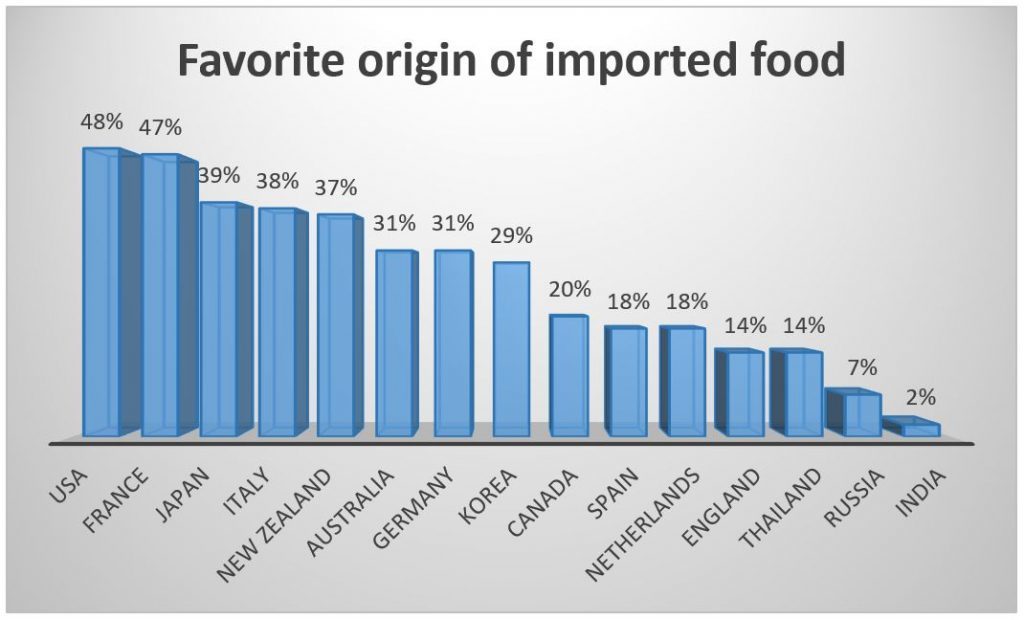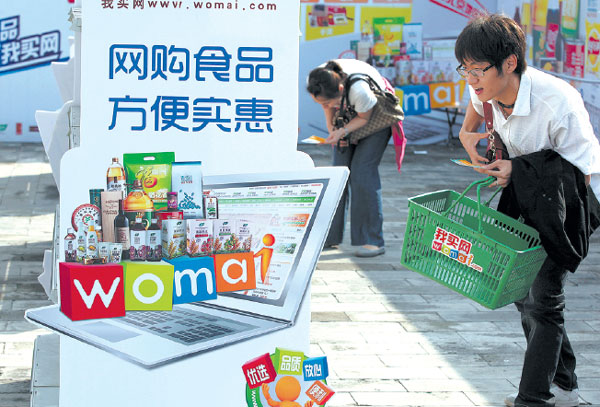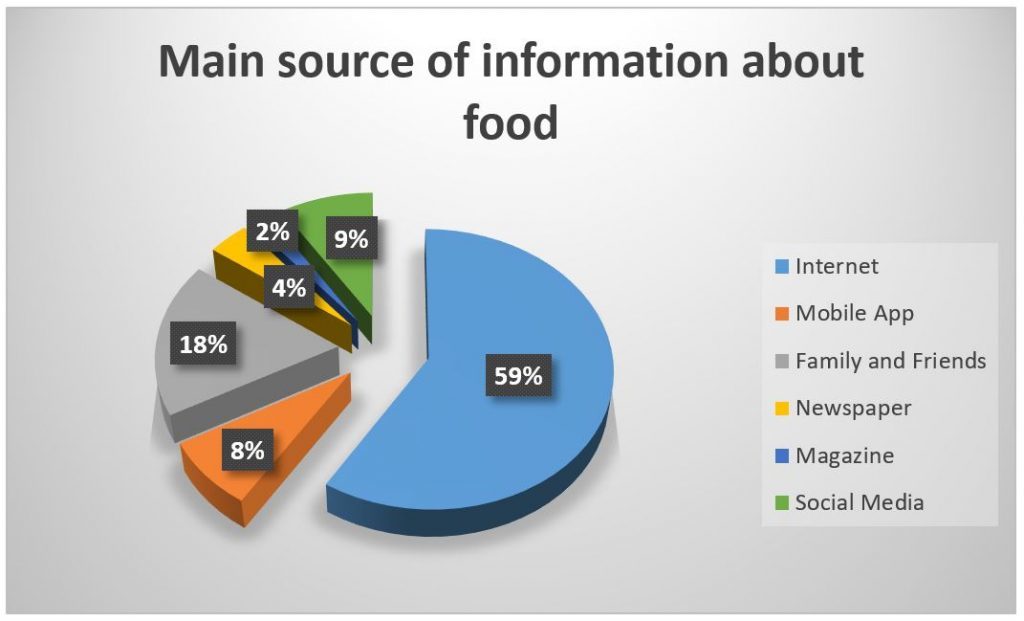Food sales in China is a dynamic business, specially imported food. The increase of products available in the marketplace, the rise of the middle class, and too little assurance in local products has resulted in remarkable changes in the market shopping landscape.
15% growth every year
Sales/Offers of imported food products in China are at a record high with a growth rate of 15% per year against a worldwide average of around 4%.
High Competition
Competition can be high, and for imported goods it is getting more difficult. Developments in the quality of products that are Chinese and higher taxes for imported goods pose potential barriers to success for many producers of products that are foreign.
But harder does not mean hopeless. There’s still a strong demand for products that are imported and, if you understand what the Chinese consumer is looking for, you are able to raise your odds of securing your place in the industry.
For those thinking about entering the food that was imported product business, Gentlemen Marketing Service has prepared this summary of the shopping habits of Chinese consumers. It is based on market research conducted from a number of demographic histories with 196 Chinese shoppers.
Imported Food Products: What you need to know about the Chinese Consumer
### General food buying behavior
HOW ARE CONSUMERS STUDYING FOOD PRODUCTS:
Much like most things in China, the web is the primary supply of advice in regards to Chinese consumers studying food brands. Almost two thirds of respondents said they assessed Baidu (China’s Google) for advice on food brands before buying a product. Friends and family represented the second most popular source of advice.
Results for papers and magazines are not high as expected. As it’s expensive and hard to quantify print media promotion is not a main promotion avenue for food in China.
Social Media influence
The results for mobile apps and social media are not bore with only 9% and 8% respectively. With the objective of this analysis it’s hypothesized that their answer was generalized by respondents into the web category. It does however merit further investigation at a later date as social media usage in China is tremendous.
about the survey
Across all age groups, age failed to play a significant factor in results with similar results in this section. The one area where age did play a factor worth considering is in the 25 -34 age group where they are likely to be powerfully affected by word of mouth referrals from friends or family or through social media.
HOW ARE CONSUMERS SHOPPING ONLINE:
Online food sales continue to grow in popularity as consumers seek convenience and choice.
94% purchase online
From the panel that was surveyed, 94% had purchased food online, with the favorite platform that was Tmall. JD and Yihaodian also performed well.
Purchasing right from your brands site ranked further down in fifth position. This can be attributed or credited to the strategic/key move by many brands to spread through a larger Chinese e-commerce platform for logistical ease. For the consumer, it really is more effective to see with an aggregator site so this strategy is effective at both ends of the cycle to find all choice.
### Imported food purchasing behavior
ARE CONSUMERS PURCHASING IMPORTED PRODUCTS:
A high percentage (84%) of respondents had bought imported food.
There was little difference in the results per city, with Shanghai being only surpassed by Beijing.
Shoppers aged over 45 are the most timorous as it pertains to buying imported products but results continue to be powerful at 72%. The maximum uptake was in the 35 to 44 year age group where imported products had been purchased by 91% of those studied.
74% of those surveyed purchased imported food as a present. This is likely a reflection of the perception that food that is imported is of a quality that is higher and is hence more valuable. As a result packaging and branding is very important.
HOW THE CHINESE BUY IMPORTED PRODUCTS:
The buying behavior of products that are imported is in line with national shopping practices.
60% of respondents who buy food that is imported do online, with 70% saying it is most convenient. Added comments noted that shoppers could additionally find better prices through on-line platforms than in conventional stores.
Buddies and family recommendations, along with advice that is on-line was the driving variable for 67% of the panel to purchase food that is imported online.
WHAT IMPORTED PRODUCTS ARE CHINESE PURCHASING/BUYING:
China imports a broad variety of food products including bottled water, meats, dairy and confectionary too as drinks – including tea, coffee and alcohol.
For the respondents of this survey, snacks foods and dairy products were the most often bought. Over half of the respondents who buy imported food have purchased at least one product for either group.
WHAT’RE FOR WHEN BUYING IMPORTED PRODUCTS CHINESE CONSUMERS LOOKING:
Safety is the most important issue for eighty % of the panel. For a country frequently rocked by food scandals this is just not a surprising outcome.
Quality ranked second, seen as an important buying cause for 66% of the panel. The brand impacts two out of three respondents who purchase imported food
WHAT ARE THE POPULAR SOURCE MARKETS FOR IMPORTED PRODUCTS:
The United States and France are the most used source markets for those studied.

Those two nations are seen as having the best reputation for food.
Italy and Japan follow closely behind, with New Zealand and Australia also ranking. Nations that are these appeal to consumers on two amounts.
Firstly, they are thought to be more advanced in food production with better production techniques and more hygienic factory surroundings. Secondly, they are aspirational destinations with ways of life the Chinese attempt to imitate. For the rich/affluent young Chinese, consuming these products can mean a hint of wealth and worldliness.
Market places are important
The survey clearly demonstrates that consumers are open to purchasing them and that there’s a place in the marketplace for imported food products.
Businesses who encourage confirmed quality and security on packaging and through promotion actions will be more appealing to Chinese shoppers who rate these aspects as quite significant when contemplating their purchases.
Food is an issue in China.
further reading :
- Food quality in China
- Food scandals make imported market rising
- Food concern in China
- Chinese hunger for Australian food as ‘daigou’ leave $1 billion tax hole
-




2 comments
xiao yù
The buying behavior of products that are imported is in line with national shopping practices. Very interesting subject! As an expat living in China, I can do nothing but agree!!